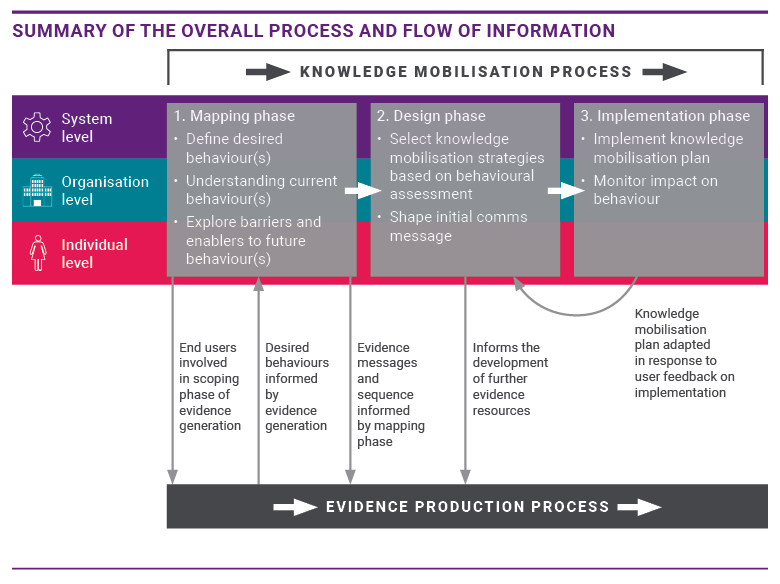Briefing
Developing a behavioural approach to knowledge mobilisation: Reflections for the What Works Network
This report offers reflections for the What Works Network on a collaboration between EIF and the Education Endowment Foundation to develop and study an approach to designing a user-informed strategy to mobilise evidence on social and emotional learning.
Full briefing
A common challenge across the What Works Network is putting evidence into action at scale. Simply providing information about evidence-based programmes or practices is insufficient to change what policymakers, commissioners or practitioners do, even if that information is underpinned by robust research.
This briefing summarises our efforts to develop and pilot an approach to mobilising research evidence that was informed by the behavioural needs of users. Specifically, it focuses on efforts to mobilise a joint piece of evidence-based guidance from the EIF and the Education Endowment Foundation (EEF), focused on promoting social and emotional learning (SEL) in schools.
This approach was based on the premise that by understanding the current state of practice and the current state of the evidence base, What Works centres could better address the gaps between the two. This project was supported by the What Works Network Strategic Fund.
The briefing describes the three phases of activity involved in developing the knowledge mobilisation plan, including mapping (gathering information and data), design and implementation, as set out in the diagram below. It also provides the authors’ observations on the impact and practicalities of this approach, and recommendations for others seeking to conduct a similar process in future.

